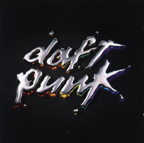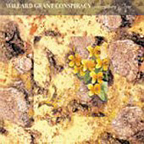|
When I become Dictator of America, I will appoint as Minister of Propaganda Vincent K. McMahon, owner of the World Wrestling Federation. Or maybe I'll just dragoon his production team, the people responsible for the live shows that cross a strip club with the Nuremburg rallies, videos that make MTV look as slow and unfocused as Antonioni on a syrup bender, and the big, boss sounds. Why should I answer to that wheezy old saw, "Hail to the Chief," when I could strut my way to the podium to the bone-crunching strains of Motorhead's version of "The Game"? The World Wrestling Federation surpassed and ultimately absorbed its main competitor, World Championship Wrestling, for a lot of reasons, but this CD points to one of the most important. The WWF was always more aware of, and responsive to, the shifting styles of pop culture. WCW played its wrestlers to the ring with generic muscle car rock; the Fed gets the crowd on its feet with music that drew from a variety of influences - rap, techno, goth, metal. Intros are an essential part of the stars' personae - eg. the Pavlovian riot that erupted whenever the sound of breaking glass kicked off the old anthem for "Stone Cold" Steve Austin. Dig the EKG-going-flatline hook in Tazz's theme "If You Dare", the Kittie-esque intro for tough-girl Lita, the low-rider hunch of "Latino Heat", or Raven's grunge-psych theme. A lot of these tracks are catchier and rock harder than that candy-ass crap on the radio. - Bill Widener
 Daft Punk Daft PunkDiscovery Virgin Records America James Spence once described Daft Punk's sound as "Tron-meets-Battlestar Gallactica cavorting with the sounds of Cameo, Jean-Michel Jarre, and Jan Hammer." A horrifying and puzzling description, but one that perfectly fits this Parisian DJ duo who celebrate their anonymity by publicly wearing robot masks. Crafting their own style of Euro dance music, Daft Punk is part party and part parody. There's plenty of analog nostalgia and lots of vocoder vocals, cheesy keyboards, and pumping bass lines as each song flirts precipitously with kitsch. The result is a fun record with moments of triumph and transcendence, but also a muddled record that loses its identity along the way. "One More Time" kicks off the record with a shamelessly happy romp of dancing and romancing, Buck Rogers style. The synth boogie of "Digital Love" is like an arcade game soundtrack with a pulse and a little 80's theme show music thrown in for good measure. "Crescendolls" is like Whodini with Brazillian beats. The eerie "Nightvision" recalls 10cc while "Short Circuit" gives a nod to Grandmaster Flash and company. And "Something About Us" feels like a slow jam groove a la Prince's Black Album. Discovery is a digital explosion with sonic debris thrown everywhere as Daft Punk deftly navigate through waves of funk, trance, and disco. But while a few songs evolve into an abstract, sensual gallop, others just wander into boring territory with predictable loops and far less texture. The first half of the record is loaded with songs that grab you and won't let go. However, the ideas get a bit thin near the end and many songs end up sounding pleasantly disposable. For all its intricacies, funky stabs, and bouncy loops, this record isn't a major discovery, but enough of a find to keep you listening, hoping for future exploration. -Chris Webb
What kind of reptile would you expect to be alt-country's modern-day equivalent of the Lizard King? The most obvious guess seems like it'd be a gator from some kudzu-encrusted swamp. Or maybe a pit viper utilized by the fate-tempting faithful at one of those churches in the most desolate hollows of Appalachia. It certainly would not be a chameleon. But check out "Ballad of John Parker" on the Willard Grant Conspiracy's new album, and see if there aren't echoes of the Doors - "Spanish Caravan," in particular, although the WGC's piano player Peter Linnane seems more aligned to the less dated work on Morrison Hotel. But if lead singer Robert Fisher is doing a twang-touched take on Jim Morrison's dark sensual prophecies - and he really nails it with the certainty applied to "The Beautiful Song" - then that doesn't account for second track "Christmas in Nevada" being pretty much a dead ringer for Dire Straits. The explanation is that Fisher is not the sole significant driving force within the band. That's a good thing, since his voice can't consistently hold either its low foundation or the reined-in little howls he puts into higher-pitched lyrics. There are a lot of people contributing to this group's work (as has been the case throughout their history). The sheer variety of the players is what gives this group an eerie little hedge of unpredictability; otherwise, the same five musicians might become too-familiar presences among the strummings accompanying inner dialogues from characters blown by figurative or literal winds. Whether or not the "conspirators" are aware of how they accomplish consistent unease that lets the entire set play well, this is a unique (if compromised) dramatic take on country-and-western. -T.E. Lyons
|
||
|
|
 Various Artists
Various Artists  Willard Grant Conspiracy
Willard Grant Conspiracy